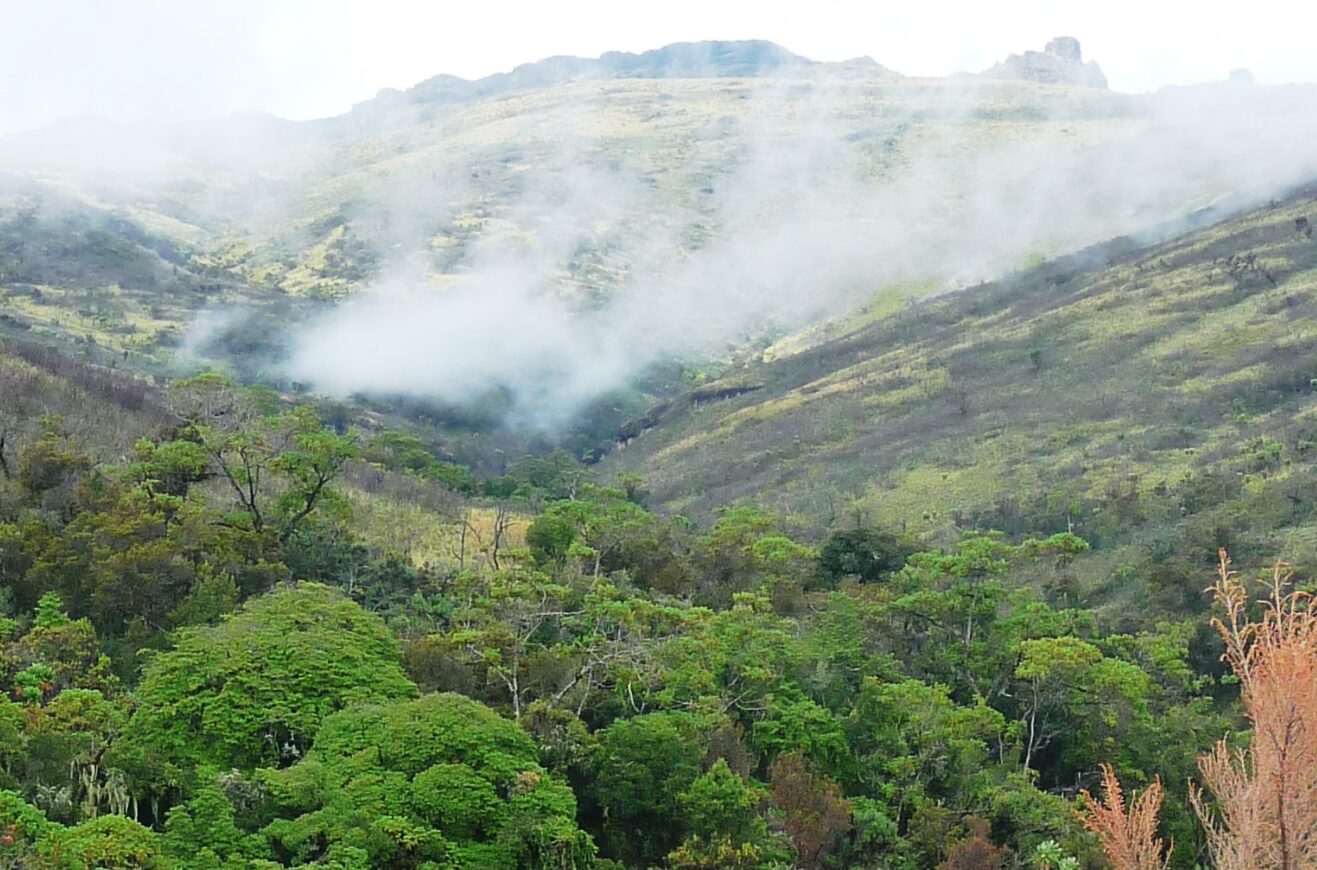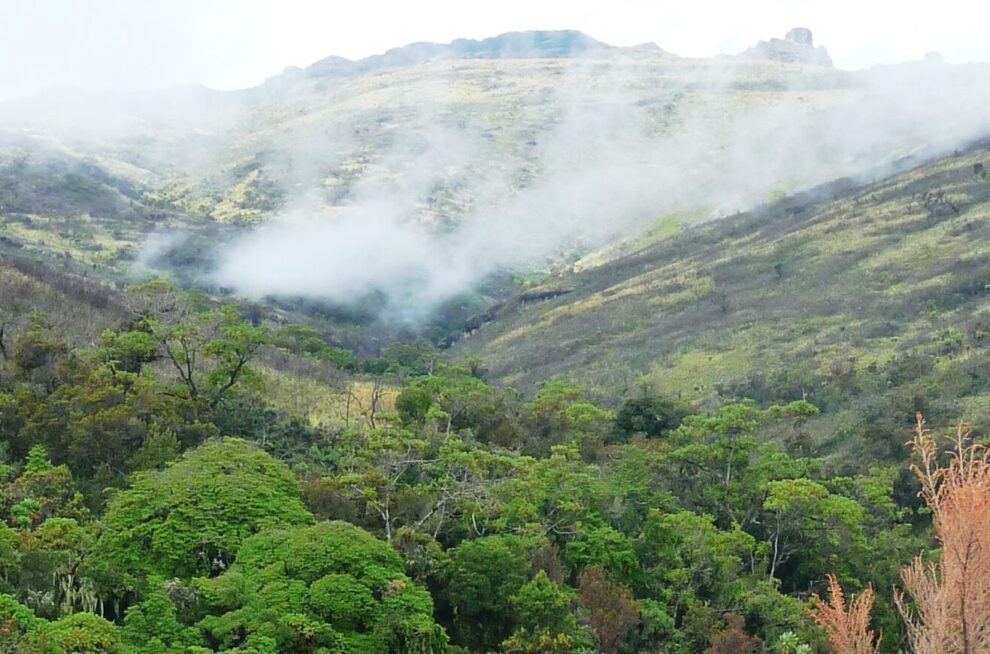Kenya and Uganda have agreed on a plan to conserve Mount Elgon’s fragile ecosystem by establishing the region’s second transboundary biosphere reserve.

A memorandum of understanding (MoU) signed at Suam in Kenya’s Trans Nzoia County establishes a framework for joint management of this critical water tower and biodiversity that straddles the two countries.
Mount Elgon, an extinct volcano rising over 4,000 metres, serves as a vital water source for residents of both countries, feeding the Nzoia, Turkwel and Malakisi rivers. The mountain is one of East Africa’s most important ecological assets.
Kenya’s Forestry Principal Secretary, Gitonga Mugambi, acknowledged the challenges threatening Elgon’s ecological integrity, including illegal logging, agricultural encroachment, and charcoal burning.
The mountain also faces multiple threats, as shrinking wildlife habitats have escalated human-wildlife conflicts, while climate change has brought erratic weather patterns that endanger both biodiversity and water resources.
The newly signed MoU establishes specific mechanisms for collaboration, including joint plans, programmes and projects with coordinated resource allocation. It also outlines integrated water resource management across the ecosystem and collaborative strategies to address land degradation, pollution, and biodiversity loss.
Community-based natural resource management approaches and cross-border tourism development initiatives are additional key components of the agreement.
To commemorate the agreement and raise ongoing awareness, both countries have declared November 7 as Mount Elgon Day, an annual occasion dedicated to conservation initiatives in the region.
This partnership gained global recognition in June 2023 when Unesco’s Man and the Biosphere (MAB) International Coordinating Council designated Mount Elgon as Africa’s second transboundary biosphere reserve at its 35th session in Paris.
Speaking at the signing ceremony, Doreen Katusiime, Permanent Secretary in Uganda’s Ministry of Tourism, Wildlife and Antiquities, said: “Kenya and Uganda have enjoyed long-standing informal collaboration. We laud this MoU as a formal step toward regional economic integration and connectivity.” More than 5,000 trees were planted across the Mount Elgon landscape on both sides of the border, a strategic move to rehabilitate degraded areas and enhance ecosystem resilience.
Kenya’s Principal Secretary for Tourism, Wildlife, and Heritage, Silvia Museiya, emphasised the central role of local communities in the conservation strategy.“
By fostering collaboration, strengthening conservation strategies, and engaging local communities, both nations are setting a precedent for sustainable natural resource management in Africa,” she said.“I assure the local communities that conservation efforts will be pursued through a community-based natural resource management approach, and that people and nature will coexist harmoniously.”
Beyond conservation, officials highlighted the potential economic benefits of cross-border tourism.“Mount Elgon’s breathtaking landscapes, diverse wildlife, and rich cultural heritage present significant opportunities,” Mugambi said.“ If managed sustainably, eco-tourism can serve as a powerful source of income and pride for communities on both sides of the border.”



















